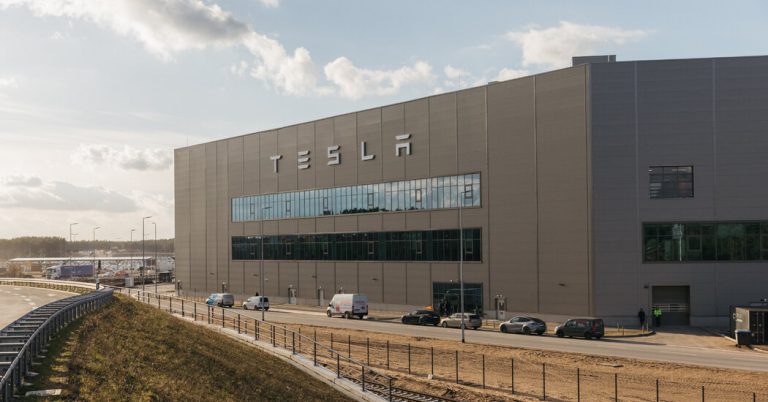Why it matters: A factory that has divided a town.
Tesla’s decision to locate in Grünheide, which is in the state of Brandenburg, and the speed with which the factory was built — 861 days — was a point of pride for local politicians in a country known for onerous permitting processes.
The plant, which opened two years ago, has also become a major driver of growth in the state, long one of Germany’s most economically troubled. Brandenburg recorded economic growth of 6% in the first half of 2023, mainly due to the 11,000 jobs at the factory and dozens of suppliers that have developed around it.
But many local residents argue the plant has disrupted the quality of life that drew them to Grünheide and say it threatens air and water quality.
Some said Tesla already had the right to build warehouses and a rail yard on the existing 740-acre footprint where the factory sits. They welcomed the opportunity to have a say on the matter.
“This is the first time that local residents have been asked and they have given a very clear answer,” said Steffen Schorcht, an activist with the Bürgerinitiative Grünheide, which opposed the expansion. “We expect politicians to respect that.”
Offer offered
Brandenburg Economy Minister Jörg Steinbach said the vote reflected the world’s persistent uncertainty about the US electric vehicle maker and it would be up to politicians to work harder to convince them of how its presence benefits the region.
“I see the outcome of the vote as an incentive for the municipality and Tesla to address the unresolved conceptual concerns in the coming weeks and months,” Mr. Steinbach said.
What happens next: The decision falls to the city council.
Mr Christiani welcomed the fact that more than 70 percent of voters in Grünheide cast their ballots. However, he pointed out that the plan they voted against also included infrastructure developments that are important to the wider community and should be resolved.
The final decision on how to proceed rests with the Grünheide city council. It has not put the issue on the agenda for the next meeting, in March, and officials declined to comment on when that might happen. The body will hold its last meeting before local elections in mid-May.




